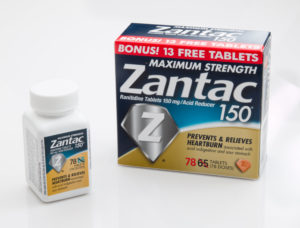Report: New regs are a bitter pill for LTC pharmacies
Long-term care (LTC) pharmacies handle much of skilled nursing’s medication management needs, yet most of them are struggling to survive in the age of Medicare payment reform, according to a new report from Avalere Health.
The report, “Long-Term Care Pharmacy: The evolving marketplace and emerging policy issues,” was funded by the Senior Pharmacy Coalition and is the deepest dive into the LTC pharmacy market since the Medicare Part D plan began in 2006.
Unlike commercial pharmacies, long-term care pharmacies provide senior-specific levels of medication management in addition to dispensing prescriptions. They also help skilled nursing facilities meet regulatory compliance mandates for drug administration, resident safety, medication cart stocking, packaging of unit doses, and maintaining a facility’s medication records.
Yet, the LTC industry is an odd mix, following years of consolidation. Nearly half the market is dominated by two players (Omnicare and PharMerica), while the other half is made up of 1,000+ small, independent LTC pharmacies.
For senior medications, Medicare Part D pays for the largest sector of prescriptions. But reimbursement methods, especially for generic drugs, aren’t always consistent either, the study notes. Some recent government initiatives designed to curb waste and unnecessary spending have backfired in the LTC pharmacy realm, including mandatory “short cycle” dispensing of medications. In addition, Medicare’s maximum allowable cost (MAC) pricing often leaves LTC pharmacies shorted, the study notes.
“What role can LTC pharmacies play in the new and emerging payment and delivery models for post-acute/LTC?” the report authors ask. “LTC pharmacies have demonstrated the expertise to meet these needs and ensure that elderly patients receive the right medications at the right time… Policymakers and researchers should ensure that LTC pharmacies receive appropriate reimbursement for the medications and services they provide. Without that support, payers and providers will have fewer options when seeking LTC pharmacy partners.”
The report urges policymakers to consider how to improve delivery models and reimbursement in the LTC pharmacy sector, including “how LTC pharmacists can be properly compensated for the clinical and regulatory activities they perform in the LTC-only setting.”
Read the Avalere study here.

Pamela Tabar was editor-in-chief of I Advance Senior Care from 2013-2018. She has worked as a writer and editor for healthcare business media since 1998, including as News Editor of Healthcare Informatics. She has a master’s degree in journalism from Kent State University and a master’s degree in English from the University of York, England.
Related Articles
Topics: Executive Leadership , Medicare/Medicaid , Regulatory Compliance










